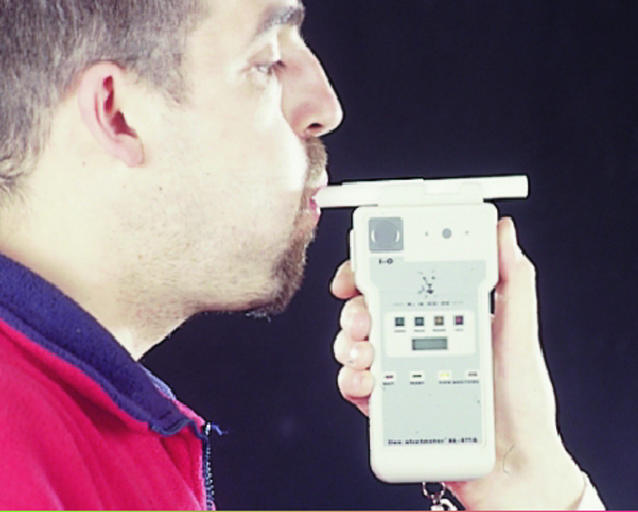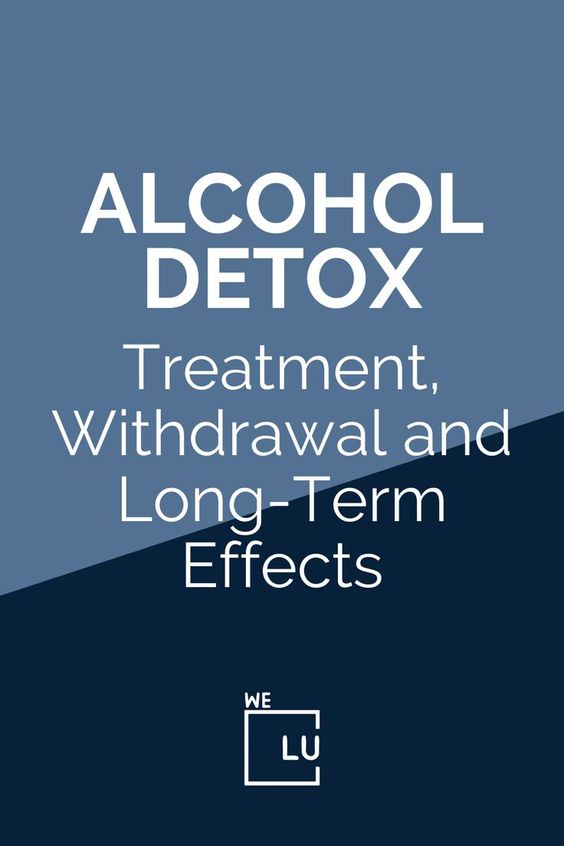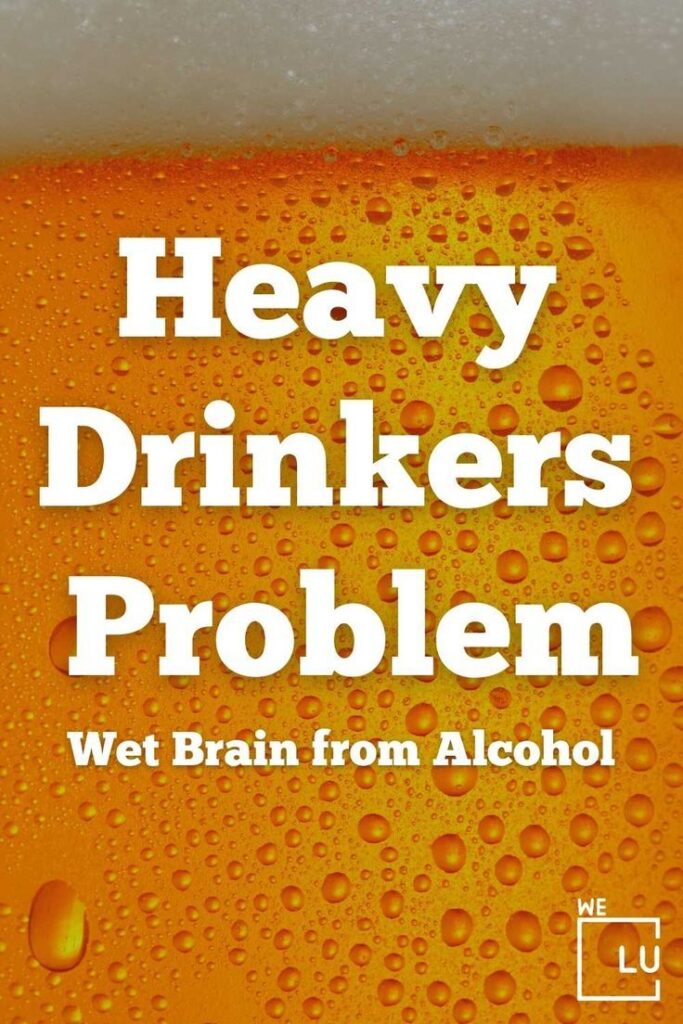How Long Does Alcohol Stay on Your Breath? – Breathalyzers & Drunk Driving
You may be worried about how long does alcohol stay on your breath? Motorists can be stopped and required to take a breath test by police at the scene of a road traffic accident if a police officer suspects a motorist may be driving under the influence of alcohol or if a motorist commits a moving traffic offense.
Alcohol abuse is a life-threatening condition that can lead to a constant health crisis, alcohol use disorder, and even death. Immediate help is the only way to avoid harm to yourself or a loved one. Fortunately, safe and comfortable alcohol detox is attainable if you seek professional help rather than detox by yourself and face harmful withdrawal symptoms.
According to the National Highway Traffic Safety Administration [1], every day:
- About 32 people in the United States die in drunk-driving crashes — that’s one person every 45 minutes
- In 2020, 11,654 people died in alcohol-impaired driving traffic deaths — a 14% increase from 2019
- In 2020, there were 2,041 people killed in alcohol-related crashes where a driver had a BAC of .01 to .07 g/dL
- About 30% of all traffic crash fatalities in the United States involve drunk drivers (with BACs of .08 g/dL or higher)
These deaths were all preventable. First, we have to understand what is Blood Alcohol Content (BAC). BAC is measured with a breathalyzer, a device that measures the amount of alcohol in a driver’s breath, or by a blood test.
How Long Does Alcohol Stay on Your Breath for Breathalyzer?
A breathalyzer can detect alcohol on the breath for up to 24 hours. The amount of time that alcohol stays detectable on the breath depends on the person and the amount of alcohol consumed. The detection time may change and may depend on the person’s alcohol metabolism, which is affected by many factors, including age and weight.
Blood alcohol level results may be given in different ways, including the percentage of blood alcohol content (BAC). Typical results [3] are below.
- Sober: 0.0 percent BAC
- Legally intoxicated: .08 percent BAC
- Very impaired: .08–0.40 percent BAC. At this blood alcohol level, you may have difficulty walking and speaking. Other symptoms may include confusion, nausea, and drowsiness.
- At risk for serious complications: Above .40 percent BAC. At this blood alcohol level, you may be at risk for coma or death.
How Long Does Alcohol Stay on Your Breath for Interlock?
An ignition interlock device or breath alcohol ignition interlock device (IID or BAIID) is a breathalyzer for an individual’s vehicle. measures the electrical current and figures out how much alcohol had to be in your breath to create that electrical current. If that amount is under the threshold of 0.02 BAC, the device will allow a signal to pass from the ignition to the starter, and the vehicle’s engine will turn on.
How Long Does Alcohol Stay on Your Breath? – Why Drinking and Driving are So Dangerous?
Alcohol is a depressant; it sedates the central nervous system. One of the first areas of the brain to be affected is the cerebral cortex, which controls judgment, self-control, and inhibitions. Alcohol’s sedating effects impair a driver’s decision-making skills and coordination. As a result, an impaired driver cannot quickly and decisively avoid an accident or even conduct routine driving maneuvers.
If you refuse to take a breathalyzer or think the test wasn’t accurate, you may ask for or be asked to take a blood-alcohol test.

Source: Alcohol breath testing – National Center for Biotechnology Information https://www.ncbi.nlm.nih.gov/pmc/articles/PMC1124861/

Skip To:
Learn More:
- Alcohol Abuse
- Symptoms of Alcohol Use Disorder
- Alcoholism and Financial Problems
- Alcohol and Aging
- Alcohol and Insomnia
- Kindling Alcohol
- Alcoholic Cirrhosis
- Mixing Prescription Drugs with Alcohol
- Dry Drunk Syndrome
- Inpatient Alcohol Rehab Center
- Alcoholism Treatment, Signs, Complications & Rehab Programs
- Alcoholic Hepatitis Treatments
- Wet Brain Treatment
- Alcoholism Treatment Near Me
- Alcohol Withdrawal Treatment

Get Your Life Back
Find Hope & Recovery. Get Safe Comfortable Detox, Addiction Rehab & Dual Diagnosis High-Quality Care.
Hotline(844) 597-1011Alcoholism Statistics
In 2019, of the 85,688 liver disease deaths among individuals ages 12 and older, 43.1 percent involved alcohol. Among males, 53,486 liver disease deaths occurred, and 45.6 percent involved alcohol. Among females, 32,202 liver disease deaths occurred, and 39.0 percent involved alcohol.
According to the 2019 National Survey on Drug Use and Health (NSDUH), 85.6 percent of people ages 18 and older reported that they drank alcohol at some point in their lifetime.
Source: NIAAA
According to the 2019 NSDUH, about 7.3 percent of adults ages 18 and older who had alcohol use disorder (AUD) in the past year received any treatment in the past year.
Source: NIAAA
An estimated 95,000 people (approximately 68,000 men and 27,000 women) die from alcohol-related causes annually.
Source: NIAAA
Alcohol Facts
What is Alcohol?
The chemical name ethanol sometimes refers to alcohol, is a depressant drug that is the active ingredient in drinks such as beer, wine, and distilled spirits (hard liquor).
What is its origin?
The earliest known evidence comes from 7,000 BCE in China, where residue in clay pots has revealed that people were making an alcoholic beverage from fermented rice, millet, grapes, and honey.
What are common street names of alcohol?
Many people have heard of the names “booze,” “brew,” and “cold one” to describe alcohol, specifically beer. Some other common street names and nicknames for alcohol include:
- Juice
- Hard stuff
- Sauce
- Hooch
- Moonshine
- Vino
- Draft
- Suds
- Liquid bread
- Oats soda
What are common scientific names of alcohol?
Pronunciation/ˈɛθənɒl/ Ethanol
Other names:
- Absolute alcohol
- Alcohol (USP)
- Ethanol (JAN)
- Ethylic alcohol
- EtOH
- Ethyl alcohol
- Ethyl hydrate
- Ethyl hydroxide
- Ethylol
- Grain alcohol
- Hydroxyethane
- Methylcarbinol
Legal status: US: Unscheduled
Routes of administration Common: by mouth
Uncommon: suppository, inhalation, insufflation, injection
What type of drug is alcohol?
- Analgesic
- Depressants
- Sedatives; Anxiolytics
- Euphoriants
- GABAA receptor positive modulators
What is its effect on the body?
Physiological effects of oxycodone include:
- Pain relief, sedation, respiratory depression,
constipation, papillary constriction, and cough
suppression. - Extended or chronic use of oxycodone
containing acetaminophen may cause severe liver
damage
Pharmacokinetic Data
Bioavailability: 80%+
Protein binding: Weakly or not at all
Metabolism: Liver (90%):
• Alcohol dehydrogenase
• MEOS (CYP2E1)
Metabolites Acetaldehyde; Acetate; Acetyl-CoA; Carbon dioxide; Water; Ethyl glucuronide; Ethyl sulfate
Onset of action Peak concentrations:
• Range: 30–90 minutes
• Mean: 45–60 minutes
• Fasting: 30 minutes
Elimination half-life Constant-rate elimination at typical concentrations:
• Range: 10–34 mg/dL/hour
• Mean (men): 15 mg/dL/hour
• Mean (women): 18 mg/dL/hour
At very high concentrations (t1/2): 4.0–4.5 hours
Duration of action 6–16 hours (amount of time that levels are detectable)
Excretion• Major: metabolism (into carbon dioxide and water)
• Minor: urine, breath, sweat (5–10%)
How Long Does Alcohol Stay in Your System Breath Test – Breath Test for Alcohol
Alcohol breath test. A breath test and blood alcohol test may be used to find out if you:
- Have been drinking and driving (Breath alcohol test). In the United States, .08 percent blood alcohol level is the legal alcohol limit for drivers who are aged 21 and over. Drivers younger than 21 are not allowed to have any alcohol in their system when driving. [4]
- Are legally drunk. The legal alcohol limit for drinking in public varies from state to state this is measured by an alcohol breath tester.
- Have been drinking while in a treatment program that prohibits drinking, this is measured by a breath alcohol tester.
- Have alcohol poisoning. A life-threatening condition that happens when your blood alcohol level gets very high. Alcohol poisoning can seriously affect basic body functions, including breathing, heart rate, and temperature.
Get Help. Get Better. Get Your Life Back.
Searching for Accredited Drug and Alcohol Rehab Centers Near You?
Even if you have failed previously and relapsed, or are in the middle of a difficult crisis, we stand ready to support you. Our trusted behavioral health specialists will not give up on you. When you feel ready or just want someone to speak to about therapy alternatives to change your life call us. Even if we cannot assist you, we will lead you to wherever you can get support. There is no obligation. Call our hotline today.
(844) 597-1011How Long Does Alcohol Stay on Your Breath? – How Long Can Alcohol Stay in My System?
The rate of absorption of alcohol depends on several factors. It is quickest, for example, when alcohol is drunk on an empty stomach, and the concentration of alcohol is 20-30%. The liver eliminates more than 90% alcohol; 2-5% is excreted unchanged in urine, sweat, or breath.
On an empty stomach, blood alcohol concentration peaks about one hour after consumption, depending on the amount drunk; it then declines more or less linearly for the next four hours. Alcohol is removed from the blood at a rate of about 3.3 mmol/hour (15 mg/100 ml/hour), but this varies in different people, on other drinking occasions, and with the amount of alcohol drunk. [5]
On average, the liver can process 1 ounce of alcohol every hour, and it can be detected in the blood for several hours and in the urine for several days. It can also take 6 to 12 hours before the alcohol fully clears out of your bloodstream, causing alcohol hangovers.

Alcohol is never completely safe. Continued alcohol abuse can shorten your lifespan. Drinking alcohol can cause alcoholic cirrhosis, it occurs after years of heavy drinking. Alcoholic liver disease is treatable if it is caught before it causes severe damage. In case of severe damage, the liver cannot heal or return to normal function.
How Long Does Alcohol Stay on Your Breath? How long does alcohol stay on breath?
How long does alcohol stay in breath? After you stop drinking, alcohol can linger on your breath, saliva, or urine for anywhere from 12 to 24 hours. Like other drugs, alcohol can also be detected on your hair for up to 90 days. But again, what you consume determines how long it’ll take for the alcohol to clear out of your system.
- Beer: 5% alcohol
- Malt liquor: 7% alcohol
- Wine: 12% alcohol
- Hard liquor: 40% alcohol
Drinking more potent alcoholic drinks can accelerate the absorption rate. This causes alcohol to stay in your system for more extended periods.
How Long Does Alcohol Stay on Your Breath? – How Much Alcohol is Too Much?
How long does alcohol breath last? Excessive alcohol use is a leading preventable cause of death in the United States, shortening the lives of those who die by an average of 26 years. [6] Alcohol abuse includes:
- Binge drinking is defined as consuming four or more drinks on occasion for a woman or five or more drinks on occasion for a man.
- Heavy drinking is defined as eight or more drinks per week for a woman or 15 or more drinks per week for a man.
- Any alcohol use by pregnant women or anyone younger than 21
First-class Facilities & Amenities
World-class High-Quality Addiction & Mental Health Rehabilitation Treatment
Rehab Centers TourRenowned Addiction Centers. Serene Private Facilities. Inpatient rehab programs vary.
Addiction Helpline(844) 597-1011Proven recovery success experience, backed by a Team w/ History of:
15+
Years of Unified Experience
100s
5-Star Reviews Across Our Centers
10K
Recovery Success Stories Across Our Network
- Low Patient to Therapist Ratio
- Onsite Medical Detox Center
- Comprehensive Dual-Diagnosis Treatment
- Complimentary Family & Alumni Programs
- Coaching, Recovery & Personal Development Events
How Long Does Alcohol Stay on Your Breath? (Breath Test Alcohol) – 11 Signs of Alcohol Abuse

Healthcare professionals use criteria from the Diagnostic and Statistical Manual of Mental Disorders, Fifth Edition (DSM-5) to assess a person and determine if the alcohol abuse is severe or if one has developed an alcohol use disorder. Severity is based on the number of criteria a person meets based on their symptoms—mild (2–3 criteria), moderate (4–5 criteria), or severe (6 or more criteria). [7]
A healthcare provider might ask the following questions to assess a person’s alcohol abuse symptoms.
In the past year, have you:
- Have times when you ended up drinking more, or longer, than you intended?
- More than once, wanted to cut down or stop drinking or tried to, but couldn’t?
- Spent a lot of time drinking? Or being sick or getting over other aftereffects?
- Wanted a drink so badly you couldn’t think of anything else?
- Found that drinking—or being sick from drinking—often interfered with taking care of your home or family? Or caused job troubles? Or school problems?
- Continued to drink even though it was causing trouble with your family or friends?
- Give up or cut back on activities that were important or interesting to you or gave you pleasure to drink.
- More than once gotten into situations while or after drinking that increased your chances of getting hurt (such as driving, swimming, using machinery, walking in a dangerous area, or having unprotected sex)?
- Continued to drink even though it made you feel depressed or anxious or added to another health problem? Or after having had a memory blackout?
- Had to drink much more than you once did to get the effect you want? Or found that your usual number of drinks had much less effect than before?
- Found that when the effects of alcohol were wearing off, you had alcohol withdrawal symptoms, such as trouble sleeping, shakiness, restlessness, nausea, sweating, a racing heart, or a seizure. Or sensed things that were not there?
Any of these symptoms of alcohol abuse may be cause for concern. The more symptoms, the more urgent the need for change.
How Long Does Alcohol Stay on Your Breath? – Alcohol Rehab Inpatient Treatment Near Me
How long does alcohol stay on your breath? The more alcohol you consume, the longer it will stay in your blood. So, if there’s alcohol in your blood, it can be detected in your breath. Over time, alcohol abuse can lead to chronic diseases and other serious problems, including alcohol use disorder and problems with learning, memory, and mental health.
How long does alcohol stay in your breath? Many people with early signs of alcoholism recover, but setbacks are common in alcohol treatment. Seeking professional help early can prevent relapse to drinking. Behavioral therapies can help people develop skills to avoid and overcome triggers, such as stress, that might lead to drinking. Medications can also help deter drinking when individuals may be at greater risk of relapse (e.g., divorce or death of a family member).
Alcoholics bad breath: If you or someone you love seeks safe, secure, and compassionate resources for alcohol abuse treatment, We Level Up is here for you. Call us and speak with an addiction counselor today about our levels of care.
How Long Does Alcohol Stay on Your Breath? – How to Get Rid of Alcohol Breath Instantly?
How to get alcohol off your breath? Consider a toilet that is full but hasn’t been flushed. Air fresheners could temporarily make the bathroom smell like a meadow, but the stench will persist until you flush it away. Alcohol behaves similarly until it is flushed from your system, or more precisely until it has been digested and expelled. This is due to the fact that your lungs, not your mouth, are where alcohol breath actually originates.
How to Get Alcohol Off Your Breath for a Breathalyzer?
How Long Does Alcohol Stay on Your Breath? Because of the following, even though your breath (temporarily) smells minty fresh, you can still fail a breathalyzer and remove alcohol breath with more than just a mint:
- When you consume alcohol, your stomach and intestines take it into your bloodstream.
- Alcohol starts to be metabolized by enzymes in order to be subsequently removed, mainly by your liver. being the keyword “mainly.”
- About 10% of alcohol that is not metabolized is removed in your urine and, you guessed it, your breath.
How to get alcohol out of breath fast? You can’t really get rid of alcohol breath; you just have to wait.
What Alcohol Smells the Least on Your Breath?
How Long Does Alcohol Stay on Your Breath? Alcohol is odorless. If the police do detect an alcohol breath smell, it is likely not ethyl alcohol but rather the flavoring of the drink. Additionally, the flavor can be misleading as to the potency or quantity is taken. For instance, beer and wine have the greatest odors but are the least intoxicating beverages. The aroma of a much stronger beverage, like scotch, will be weaker. Additionally, vodka essentially has no odor at all.
Experience Transformative Recovery at We Level Up Treatment Centers.
See our authentic success stories. Get inspired. Get the help you deserve.
Start a New Life
Begin with a free call to an addiction & behavioral health treatment advisor. Learn more about our dual-diagnosis programs. The We Level Up Treatment Center Network delivers recovery programs that vary by each treatment facility. Call to learn more.
- Personalized Care
- Caring Accountable Staff
- World-class Amenities
- Licensed & Accredited
- Renowned w/ 100s 5-Star Reviews
We’ll Call You
Search We Level Up “How Long Does Alcohol Stay on Your Breath?” Topics & Resources
Sources
[1] Drunk Driving available from: https://www.nhtsa.gov/risky-driving/drunk-driving – National Highway Traffic Safety Administration
[2-3] Blood Alcohol Level – U.S. Department of Health and Human Services National Institutes of Health
[4] Alcohol breath testing – National Center for Biotechnology Information
[5] Excessive Alcohol Use – Centers for Disease Control and Prevention Available from: https://www.cdc.gov/chronicdisease/resources/publications/factsheets/alcohol.htm
[6] Alcohol Abuse Source: Understanding Alcohol Use Disorder available from: https://www.niaaa.nih.gov/publications/brochures-and-fact-sheets/understanding-alcohol-use-disorder
[7] Information about Alcohol – NIH Curriculum Supplement Series – NCBI Bookshelf
[8] Alcohol Use Disorder – StatPearls – NCBI Bookshelf (nih.gov)
[9] Alcohol | National Institute on Drug Abuse (NIDA) (nih.gov)
[10] Alcohol (who.int)


